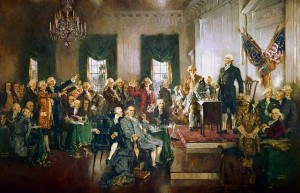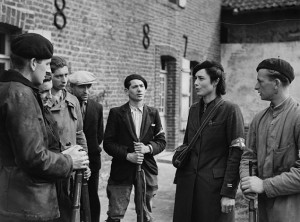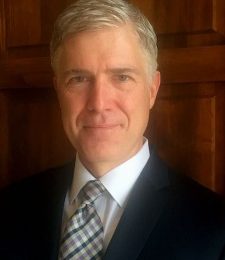 The Electoral College meets today, with the designated electors meeting in state capitols to cast their vote for president. In most states, electors are required, by law or by oath, to vote according to the election results of their state. Nevertheless, this year electors are receiving thousands of e-mails, letters, and phone calls, insisting on the autonomy of the electoral college and begging them not to put Trump in office. Even Democratic electors are being pressured not to vote for Clinton but a more conventional Republican, in the hopes of attracting enough Republican electors to switch from Trump.
The Electoral College meets today, with the designated electors meeting in state capitols to cast their vote for president. In most states, electors are required, by law or by oath, to vote according to the election results of their state. Nevertheless, this year electors are receiving thousands of e-mails, letters, and phone calls, insisting on the autonomy of the electoral college and begging them not to put Trump in office. Even Democratic electors are being pressured not to vote for Clinton but a more conventional Republican, in the hopes of attracting enough Republican electors to switch from Trump.
In the first presidential election, each state voted, either popularly or by state legislature, for upstanding citizens and trusted local leaders who gathered together to deliberate on who would make the best president. They voted, and the winner would become president. That first Electoral College chose, unanimously, George Washington. There hasn’t been a better president since.
But soon political parties came into existence, nominating their candidates. The electors came to represent a particular party. They began to all be selected by a popular vote. And soon we had the system we do today. (See this for the history of the Electoral College.)
Would you favor going back to the original Constitutional method of picking a president?
From Robert Samuels, In last-shot bid, thousands urge electoral college to block Trump at Monday vote – The Washington Post:
Pressure on members of the electoral college to select someone other than Donald Trump has grown dramatically — and noisily — in recent weeks, causing some to waver but yielding little evidence that Trump will fall short when electors convene in most state capitals Monday to cast their votes.
Carole Joyce of Arizona expected her role as a GOP elector to be pretty simple: She would meet the others in Phoenix and carry out a vote for Trump, who won the most votes in her state and whom she personally supported.
But then came the mail and the emails and the phone calls — first hundreds, then thousands of voters worrying that Trump’s impulsive nature would lead the country into another war.
“Honestly, it had an impact,” said Joyce, a 72-year-old Republican state committee member. “I’ve seen enough funerals. I’m tired of hearing bagpipes. . . . But I signed a loyalty pledge. And that matters.”
Such is the life these days for many of the 538 men and women who are scheduled to meet Monday across the country to carry out what has traditionally been a perfunctory vote after most every presidential election.





